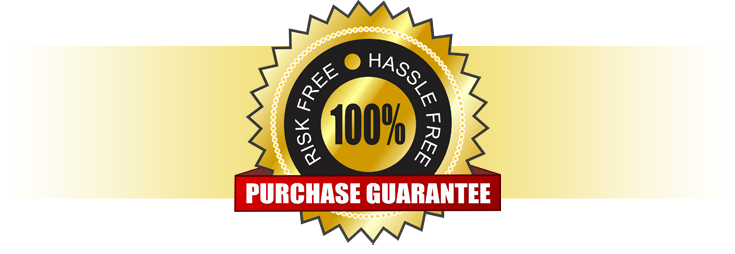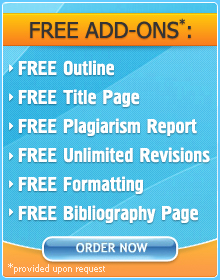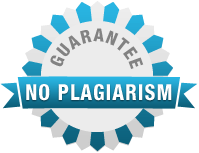1/ Washington Irving
any two of the following five questions:
1) Compare bones and crane what ideas about American masculinity can you recognize by comparing these two characters?
2) Consider the character of Rip Van Winkle. Why does the story seem to present him as a hero? Is Rip a hero (per your point of view and your modern sensibilities)? Why or why not)?
3) The word “misogyny” means hatred towards women. Many scholars have noted that early American literature seems to possess characters that are misogynistic. What can you say about these two stories with regard to misogyny? What role do women play in these texts?
4) The word “uncanny” as in the comic book title, The Uncanny X-Men, means both strange and yet familiar at the same time. Look at the story “Rip Van Winkle” and find at least three specific details that present as uncanny details from Rip’s point of view (so find 3 things that seem at once familiar yet strange to him). Hint, it may be easier to find these details once rip has awoken from his long nap.Disclaimer: once a student has posted a detail, it is used up and you cannot repost that same detail and get credit.
5) The word doppelgänger can mean evil twin. In folklore, seeing one’s own twin or doppelganger is often a sign of a bad outcome. Discuss the use of doppelgangers in either of the stories that we read for today. Hint: sometimes the doppelganger does not have to literally be a perfect copy or exact twin; the doppelgänger can be a similar echo of a character.
2/Nathaniel Hawthorne
answer any 3 questions below:
1. Consider that any of these Hawthorne stories do not have neat, easily-recognized morals or lessons. Consider for a moment that Hawthorne instead might be commenting upon human nature with these stories. What is Hawthorne saying about human nature or about sin in any one of the stories for this week? Just think hard, talk with your classmates and go for it.
2. You are Young Goodman’s Brown’s Defense Attorney. It is your job to find evidence in his story that proves that he is a hero. This evidence can be a passage that you quote, or it can be a detail that you interpret. Help defend Brown’s reputation.
3. You are a prosecuting attorney and you are out to bust Young Goodman Brown for consorting with the devil. It is your job to find evidence in his story that proves that Brown is a villian. This evidence can be a passage that you quote, or it can be a detail that you interpret. Help destroy Brown’s reputation.
4. What does “The Birthmark” share in common with “Young Goodman Brown”? How is it different?
5. What does “The Minister’s Black Veil” share in common with either “Young Goodman Brown” or “The Birth Mark? How is it different?
3/Edgar Allen Poe
respond to any two of the questions below:
1. What questions do you have about details or event in “The Fall of the House of Usher”? Come up with at least one (show that you read)–OR try to answer a question that your classmates already posted–if you are answering a question, include your classmate’s name in your answer.
2. All details in Poe’s work contribute to a single effect (what Poe calls “the singular effect). Choose one from the list of details below, and explain how it relates the effect (as you understand it) in “The Fall of the House of Usher”.
***“the tarn,” a lake that casts a reflection of the House of Usher in its waters
***a waltz is heard in the background at one point in the story
***the paintings of Henry Fuseli are mentioned (see below for one of Fuseli’s Nightmare’s )
***the entire family is in a “direct line of descent”
***a poem called “the Haunted Palace”
***Usher and his sister Madeline are twins
3. How are “The Black Cat” and the “Tell-Tale Heart” mirrors for each other? Search the stories for imagery, plot elements, and specific language that seems common. Record that below. What do you learn?
4. Art is not only about what it is about; it is about how it is about it. We know “The Purloined Letter” is about finding a stolen letter—that is the “what” of the story. What is the how of the story? Explain with examples from the text.
4/ Frederick Douglass
answer any two of the questions below:
1. Describe the event from Douglass’s narrative that affected you the most. Use specific details and make it clear that you read for today.
2. “The whole commerce between master and slave is a perpetual exercise of the most boisterous passions, the most unremitting despotism on the one part, and degrading submissions on the other. Our children see this, and learn to imitate it, for man is an imitative animal” (Norton Southern Lit. Anth. 52) Thomas Jefferson wrote these words about slavery. Describe one scene from one of the slave narratives that illustrates Jefferson’s point. Be as specific as possible.
3. A Slave Narrative was an important persuasive document that usually followed guidelines (see my Douglass video to get these guidelines). Find two quotations that demonstrate these guidelines. Quote them here and explain how you see them working. Be sure not to use a quotation that someone else has used already if you want full credit.
5/ Walt Whitman
answer any two of the six questions below. Or answer a 3rd question for 10 points extra credit!
1) Read “Song of Myself” (this was the longest poem in the book Leaves of Grass). Read it aloud or have it read to you on YouTube or LibriVox. It has a kind of musical quality. Whitman catalogs great lists of people, sights, sounds, tastes, smells, and sensory impressions related to America. I want you to choose three lines from “Song of Myself” and tell me why you chose those lines. What do you think is special or interesting about your chosen lines? If you can’t find three lines that you feel good about, then you shouldn’t try to answer this question. Instead, pick one of the other options.
2) Building on the last question, there are lines in Song of Myself that are head-scratchers. In other words, we’re not exactly sure what they mean. Find two such lines that interest you but that you are not sure what exactly they’re doing. Quote those lines and then give your best guess, and we’ll see what the rest of the class has to say about those two lines. Alternatively, look for someone’s discussion that already contains those two lines if they’ve answered this question, and now you try to offer an alternate explanation or reading for the meaning of those two lines.
3) In William Shakespeare’s Hamlet, a teenage prince is confronted with the death of his father and then the need to avenge his father’s death by killing his father’s murderer! These circumstances lead Hamlet to at least consider suicide. Life is hard, Hamlet says, and we don’t know if justice will ever come or if our burdens will ever be resolved, so why not end it all now? How would Walt Whitman respond to Hamlet? Read Walt Whitman’s poem “O Me O life,” and try to paraphrase it into modern speech. Consider it as an answer to him Hamlet’s question.“O Me! O Life!” BY WALT WHITMAN
Oh me! Oh life! of the questions of these recurring,
Of the endless trains of the faithless, of cities fill’d with the foolish,
Of myself forever reproaching myself, (for who more foolish than I, and who more faithless?)
Of eyes that vainly crave the light, of the objects mean, of the struggle ever renew’d,
Of the poor results of all, of the plodding and sordid crowds I see around me,
Of the empty and useless years of the rest, with the rest me intertwined,
The question, O me! so sad, recurring—What good amid these, O me, O life?
Answer.
That you are here—that life exists and identity,
That the powerful play goes on, and you may contribute a verse.
4) Walt Whitman did not just write poems about the world from the safety of his writing desk. The way he lived his life was part of his poetry. Read Walt Whitman’s “The Wound Dresser” in which he recounts his experience as a volunteer nurse in the Civil War, then discuss at least two lines from the poem that interest you. Be sure to quote! Explain what you find interesting, striking, or compelling in “The Wound Dresser.” What do these lines mean to you? What did they tell you about the poet?
5) If Walt Whitman were teaching this English class, based on his poetry, I like to think he would approach the teaching of literature the way that I try to approach it. In other words, I think he would allow for many different interpretations of literature as long as we could point to where we got those ideas in the text. Find at least two examples in Leaves of Grass where you believes Walt Whitman demonstrates open-mindedness and/or openness to different possibilities and points of view. Quote those lines and then explain to the class why you found them interesting.
6) Walt Whitman uses the first person “I” in his poems as a sort of all seeing eye. He also uses the second person “you” to address his readers. Find one quotation from any work of Walt Whitman’s where the voice of the narrator inhabits the point of view of another character. In other words, I’m asking you to find a line of poetry where Whitman’s narrator temporarily becomes someone else in the poem. Or, if you prefer a slightly different challenge, then find an example in one of his poems where he writes to you right now alive in the year 2017. Find a place where when Whitman write “you” he means you, dear student! Quote and explain how you are reacting to the quotation.
6/ Emily Dickinson
answer a 3rd question this week for 10 points extra credit.
1) You saw my video on the sublime (here: Sublime Definition Video (originally for ENGL 2230, but works for 2130 as well). Find an example of either the Kantian or the Burkean sublime in Emily Dickinson’s poetry, and quote the lines and then explain why you read it as the sublime? Don’t just quote! Quote and then tell me how you are interpreting/ what you got out of it.
2) Many readers of Emily Dickinson have tried to put the poet in a box. In other words, they’ve tried to read her one specific way. However, Dickinson’s poetry is full of ambiguity. We know she had a religious education. We know ideas about her religion seem to have been important to her. But we also know that she struggled with total acceptance of some of these ideas. Her poetry then appears to be a space for her to explore the contradictions of her own feelings about religion and the afterlife and so on. Please use at least three lines of poetry from any poems to discuss an example of how Emily Dickinson seems to struggle with ambiguity in her beliefs (so feeling to contradictory ways at once, or just feeling unsure).
3) How is Death characterized, described, or otherwise explored in the poems of Emily Dickinson? Use as least two different poems in your response. It is okay if the ideas contradict each other as you move from one poem to another.
4) Emily Dickinson’s poetry contains interesting punctuation—particularly the dashes— Find at least one example where the punctuation or the dashes create interesting possibilities when interpreting the poem. What I mean by that is there may be some poems that have more than one meaning—depending on how long you pause on a dash or what follows the dash. If you are not familiar with the dash, it can operate with the power of a period or more like a comma. It can emphasize what comes after it or create a bridge between two concepts. How does Emily Dickinson use it in the example that you discussed?
5) How can you compare or contrast Dickinson with Whitman? Are they more alike than they are unalike? What do they share in common and how do they differ? One way to answer this is to focus on your own reaction to their poems.
7/Rebecca Harding Davis
Answer any 2 of the 6 questions below, or answer up to 3 for 10 points extra credit.
1) “You call it altogether serious to be alive: to these men it is a drunken jest, a joke…” (1228) Is Hugh Wolfe really alive? How can you tell? Would he be better off is he did not possess the gift of sculpting? Explain. (Didn’t read? Try to fool me!)
2) “A man may make himself anything he chooses [my emphasis]” (1239). First tell me who says this in the story. Then, tell me if you believe that Davis (the author) believes this? Explain? What evidence in the story supports your point? Now, tell me if you believe this idea. Is this idea true for everyone in America in 2017 (<–or later than 2017 if I it’s the future and I forgot to change 2017 to read whatever year it now is. If you are in the future can you tell me: do we have flying cars yet?)? Whether you answer yes or no, tell me why you said yes or no.
3) “I have heard you call our American system a ladder which any man can scale. Do you doubt it? Or perhaps you want to banish all social ladders, and put us all on a flat table-land,–eh?” (1238). Imagine for a moment that you have the power to either change (or leave unchanged) any socio-economic issue affecting the United States. You can redo the budget to spend more or less on any of the following: defense, education, Medicare, Social Security, etc. Tell me what you will change and why. To help you out, I display a graph of our national budget in class. While you are answering this question, make sure to come up with a program that will help modern day people like Hugh (unless you don’t want to do that). Or don’t, if Hugh’s not our problem.
4) “I called this night the crisis of his life. If it was, it stole on him unawares.[….]Only a trifle, a little turn of the rudder, and the ship goes to heaven of hell” (1234). What chance event(s) might have spared Hugh from his fate in Life in the Iron Mills?
5) How are gender norms (i.e. expectations that a society might have about male and female roles) explored/questioned/described in this text? Find at least 3 talking points.
8/Jack London and Stephen Crane
any two of the four questions below:
1) The word “niche” (pronounced “neesh” or “nitch”; either is acceptable) means a place, an employment, a status, or an activity for which a person or thing is best fitted. Niche also means a habitat supplying the features necessary for the existence of an organism or species. Demonstrate that you read and explain how the term “niche” applies to both “To Build a Fire” and “The Open Boat” of the stories for today.
2 Traditionally, “The Open Boat” has been read as a Naturalist text (be sure to review my video here: XXXX to be able to answer this question). Name one way in which “Boat” differs from “To Build a Fire”. Name one way in which the stories are alike.
3) Discussion the depiction of human agency (in other words, the ability of a person to act in the world and chose how to live in the world, to make a life for himself or herself) in both of these stories.
4) Compare the dog (from “Fire”) and the Billie the Oiler (from “Boat”). Based on such a comparison, if Jack London were brought in the rewrite the end of “The Open” boat, how would things change for Billie the Oiler? Why would they change?
9/Gilman and Jewett
any 2 of the 4 questions below:
· What is the right choice in “The White Heron?” Why? Does Sylvia make the right choice? You may answer this question directly, or you may find a post by a classmate, and respond to their answer by adding to, politely disagreeing with, or otherwise complicating their response.
· How can you compare Jewett’s depiction of nature to either Jack London’s or Stephen Crane’s from last week? How are they alike? How are they different?
· In “The Yellow Wallpaper” has been called a Gothic tale by some, but others do not agree. Revisit the Edgar Allen Poe PPT Lecture to refresh yourself on the Gothic, and consider whether or not you think of this story as something that fits with Poe’s work, or something a little creepy but not entirely Gothic. Give examples to support your point. Feel free to talk about an earlier reading as you discuss your answer.
· Ask a clever question about some detail in “The Yellow Wallpaper”. Then answer your own question as best you can or instead respond to a classmate’s clever question. So you should be asking 1 question and answering 1 question.
10/Ellison, Hughes, and W.E.B. DuBois
answer any 2 of the 5 questions below:
· Give an example from either Ellison or Hughes’s writing that shows a character experiencing “double-consciousness.” Be specific. Quote and explain why you think it is double-consciousness.
· Choose a symbol from “The Battle Royal” and try to highlight how you see it working–or find a post where a classmate has pointed out a symbol and try to add to the interpretation. For example, someone in “The Battle Royal” has a tattoo. What is the tattoo of and why might it be an important detail?
· “Theme for English B” is written from the point of view of student and to his teacher. Discuss the way these two figures might see each other. Quote to support your answer.
· “I, Too” and “Democracy” by Langston Hughes both work by contrasting the present with a future time. Discuss the themes in either or both poems and relate them to anything else we have read this semester.
· Relate the DuBois’s reaction to Booker T. Washington’s “Atlanta Compromise” to the event in Ellison’s “The Battle Royal.”
11/Toni Morrison, Alice Walker, Maya Angelou
Answer any 2 of the 5 questions below.
1) Which of the 3 writers were you most drawn too for today? Maya Angelou, Toni Morrison, or Alice Walker? Try to explain why and perhaps quote a passage from the text.
2) Can you relate any of the themes or images in the writing of one of these writers to another other writer we have read at any point in the semester? Do so in the space below and try to quote the texts that you compare.
3) In Toni Morrison’s “Recitatif” we meets the characters Twyla and Roberta. Toni Morrison never explicitly tells us the races of the two characters. How did this impact your reading of the story? What are Twyla and Roberta’s races or can you say for sure? If you can tell, then how can you tell?
4) How do you feel about Dee? Do you sympathize with her desire to “improve” herself and her family? Why does Mrs. Johnson decide to stand up to Dee and not allow her to take the quilts at the end of the story?
5) We opened the class with Angelou’s “Human Family” back in week one as a sort of theme for a class on American Literature. Was this poem a good fit or is there another work that best sums up the many voices that we have encountered this semester.
12/ Maxine Hong Kingston and Li-Young Lee
Answer any 2 of the 3 questions below:
· Li-Young Lee describes that as a younger boy he had trouble mixing up the meaning of words in “Persimmons.” How does the poem demonstrate that language is slipperier than dictionary definitions? In other words what neat transformations does he make with the meaning of words.
· Relate the ideas, themes, images or emotions in Kingston’s “No Name Woman” to any of the readings from previous weeks. Make an interesting comparison or contrast. As always, be sure to quote.
· Compare one of Li-Young Lee’s poems to any other poem from a previous week. Does the comparison help prove Maya Angelou’s point that we are more alike than we are unlike?
[meteor_slideshow slideshow="slide3"]Are you looking for a similar paper or any other quality academic essay? Then look no further. Our research paper writing service is what you require. Our team of experienced writers is on standby to deliver to you an original paper as per your specified instructions with zero plagiarism guaranteed. This is the perfect way you can prepare your own unique academic paper and score the grades you deserve.
[meteor_slideshow slideshow="slide2"]Use the order calculator below and get ordering with idealtermpapers.com now! Contact our live support team for any assistance or inquiry.
[order_calculator]






 info@idealtermpapers.com
info@idealtermpapers.com






